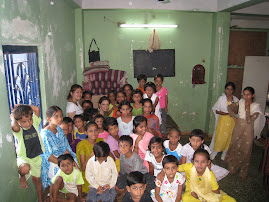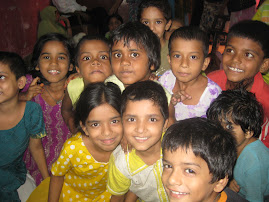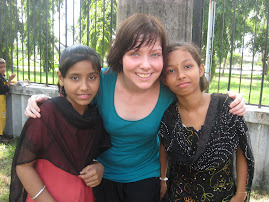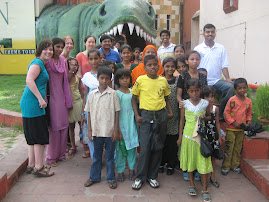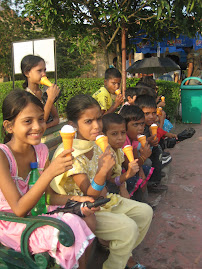Santanu Saraswati
Kolkata, August 9— Kiran Bedi did it in Tihar Jail. So did the additional director general of police (state correctional home services), B D Sharma, in state jails changing the lifestyles through education and cultural therapies.
First it was the children living with their mother imprisoned in the state correctional homes, who are getting education in good schools in and around the city. Now it will be the children of the prisoners, whose life get shattered after the main earning member of the family get imprisoned behind the four-walls of the state correctional homes for committing a mistake.
Probably for the first time in the history of country’s correctional home services, the state department has assigned a non-governmental organisation—the Rajabazar Education Awareness Development Society (READS)—to carry out the light of education among the children of the prisoners, who had to leave studies after their father or main earning member got imprisoned.
“We will start the project on an experimental basis. First it will be the children of prisoners living in Presidency and Alipore Correctional Home. If the project becomes a hit, we will carry it out even in the district,” the ADG & IG (state correctional home services), B D Sharma told Hindustan Times, on Tuesday.
The state correctional home service department has already sent notification to the jailors of the Presidency and Alipore Correctional Home for making a list of children who were forced to leave studies because of poverty after the head of the family got imprisoned. The list is almost ready. “READS has its schools and tutorials in areas like Garden Reach, Metiabruz, Rajabazar, Khidderpore in Kolkata and Mallickpore in South 24 Pargana, just an hour journey from the city. It gets students from abroad for imparting education on poor and deprived children of the society. For this project, too, students from all over the world are coming to teach the children the best of English, History, Geography, Mathematics and Environmental Studies. We are very optimistic about this project,” Sharma added.
READS, the non-governmental organisation is carrying out these types of work for over 15 years in and around the city. Most of its projects are funded by the Ministry of Human Resource Development, Government of India and the social welfare, women & child development department. “Especially for this project, we have invited students as international trainees from countries like Slovakia, Holland, Nigeria and Japan. These trainees will work with us for 12 weeks. Then next batch of trainees from countries like Australia, New Zealand, UK, France, will be joining. This way the process will continue,” said secretary of READS, Sarfaraz Ali.
Why this type of projects? According to Sharma, the effluents have the advantage of fighting the case in the court of law and even get bails. “But its difficult for the poor convicts getting bail and lead a normal life outside. Most of their families get devastated. Some of their family members may even take up odd jobs or leave the children alone forever. Life somehow is only darkness for these families. So we are trying just to show some lights at least,” Sharma added.
Ali informed that Ejoke Rachel, Chete Nwamaka and Nwasokwa Ifeoma from Nigeria, Midori Oyama from Japan, Anneriet Kodde and Sanne Klifman from The Netherlands and Nina Ursinyova from Slovakia are joining the organisation from next week. They will be teaching children, understand their psychology, find where they are lagging behind, find sponsors for them so that they could carry out their education in formal and good schools and teach the knowledge of alternative employment.
“We only take dedicated students from abroad, who will never get enticed by this life, rather would dream to build a new world for these children—helping these deprived and hapless children developing their personality, help them getting sponsors for continuing education in a better atmosphere, if not possible forever, just do it for a year only…. but never forget their grim, shaken eyes, with tears falling without a sound, unknowingly, un-noticing for those people living in a complete different world of all worldly pleasures available at the tip of their fingers. We believe these students can. Now they have to prove that we were wrong,” said Ali, with a big smile.
EOM
santanu_saraswati@hotmail.com
Sunday, August 9, 2009
Tuesday, July 28, 2009
From President's desk....
Who are we, really?
Everyone is born equal. But circumstance made everyone discriminated to a certain extent. Our children are innocent for their current situation, which stuck them both in poor educational condition and living standard.
While children from affluent city families have the privilege of enjoying the happiness of studying in good schools in a beautiful and relaxed atmosphere, children from the slums have to struggle for earning their bread even at a age when others use to play in the park. They even have to fight for the rights to study in dark dingy rooms without lights, sitting on the uneven ground, sharing the limited pencils.
As a part of education, we think the schools also should take up the responsibility to give the students a chance to get to know the situation of the kids, of the same age, but from poor family. For one hand, it can help the students build up the sense of responsibility for the society, for the other hand, it can also give the poor children more support—both economically and psychologically—in order for them to feel the concern from others, benefiting their development.
The main social problem we met in our society in the course of modernization is the big gap and inequality between people who have it ideal presupposition but a complete different economic initiative condition. The instability and threat to society will be found within less than one decade if the underprivileged people became aware about the “proto-sin” which left a deep scar on their life from this Leviathan-Society.
To keep the good nature that has been born with a kid, we must manage a mutual understanding circumstance and necessarily some proper condition that may provide our children a healthy and prospective future.
READS is a formally registered, non-profit, non-governmental organization founded by dedicated social workers just for the cause of these hapless, unnoticed, uncalled section of our population—the children. Our target group is the most underprivileged children including slum children, street children and especially children who were caught in child labour.
Currently we are running 10 primary schools for approximately 600 children in slums of areas like Raja Bazaar, Garden Reach, Metiabruz in Kolkata and Mallickpore in South 24 Pargana district. The children who are brought back from hazardous streets and labour places are provided with primary education and vocational training at our schools. The aim of our education project is to save the children from perilous conditions and help improve their living condition by giving them a tool to earn a living in the future.
The children are also provided with a meal per day and 100 INR per month to be kept away from child labor. Health care, awareness programs, family counseling services are additionally provided to enhance the quality of life of the children.
Objectives
We at READS are here to deliver, what should have been by any administrative body. We work towards an improved quality of life and the total integration of children, reach benefits to the people irrespective of caste, creed, religion and race, alleviate human suffering, try out universal enrolment of all children including girls, using both full time formal school and part-time non-formal arrangements, reduction of dropout rate from the existing 45 per cent to 20 per cent, minimum level of learning to all children at the primary level, advocacy & mobilization for promoting education, convergence for optimal utilization of resources for maximum impact, reduction in disparities by emphasis on girls’ education and special measures for girls belonging to the Muslim community, micro planning through people’s participation and decentralization.
How We Function?
To be just beside the children and deprived women folk of our society, READS carry out a base-line survey, do participatory appraisal, performing situation analysis through planning, hands on experience through exposure and training, identifying the problem, prioritisation of problems, selection of community based resources, project formulation with people, joint action with NGO’s & local administration and people, and formulating participatory monitoring and evaluation.
Mission of the organization:
--To contribute without political, religious or social prejudice, to the full social recognition of the rights of children, specifically unprivileged children and their right to education, and the full empowerment of women by uplifting their social and economic status in the community. This should be with a mission and devotion and sacrifice own’s well being.
What we expect from our International Trainees?
--We are for the children—just to help them blooming like any other children living in a classy apartment just on the reverse side of the street. See these hapless children through our eyes, join us stride by stride, understanding the psychological needs of these uncalled, unnoticed children and help them living in a better world.
We admit, there will be lots of obstacles on our roads to fulfill this dream. We admit, sometimes, one who is coming from a completely different culture and society—where one can’t even see this type of hapless children even in their most weirdest dream, could get carried away and go back to the same mixing with other trainees coming from across the globe, working in different organisations, but staying in a same trainee house under the same roof, get busy enjoying the night life of this 325-year-old city on the bank of River Hooghly—once founded by an English merchant, Job Charnock—totally forgetting for what they are here.
We need only dedicated students, who will never get enticed by this life, rather would dream to build a new world for these children—helping these deprived and hapless children developing their personality, help them getting sponsors for continuing education in a better atmosphere, if not possible forever, just do it for a year only…. but never forget their grim, shaken eyes, with tears falling without a sound, unknowingly, un-noticing for those people living in a complete different world of all worldly pleasures available at the tip of their fingers.
We believe you can. Can you prove us wrong?
Write Back: santanu_saraswati@hotmail.com
Everyone is born equal. But circumstance made everyone discriminated to a certain extent. Our children are innocent for their current situation, which stuck them both in poor educational condition and living standard.
While children from affluent city families have the privilege of enjoying the happiness of studying in good schools in a beautiful and relaxed atmosphere, children from the slums have to struggle for earning their bread even at a age when others use to play in the park. They even have to fight for the rights to study in dark dingy rooms without lights, sitting on the uneven ground, sharing the limited pencils.
As a part of education, we think the schools also should take up the responsibility to give the students a chance to get to know the situation of the kids, of the same age, but from poor family. For one hand, it can help the students build up the sense of responsibility for the society, for the other hand, it can also give the poor children more support—both economically and psychologically—in order for them to feel the concern from others, benefiting their development.
The main social problem we met in our society in the course of modernization is the big gap and inequality between people who have it ideal presupposition but a complete different economic initiative condition. The instability and threat to society will be found within less than one decade if the underprivileged people became aware about the “proto-sin” which left a deep scar on their life from this Leviathan-Society.
To keep the good nature that has been born with a kid, we must manage a mutual understanding circumstance and necessarily some proper condition that may provide our children a healthy and prospective future.
READS is a formally registered, non-profit, non-governmental organization founded by dedicated social workers just for the cause of these hapless, unnoticed, uncalled section of our population—the children. Our target group is the most underprivileged children including slum children, street children and especially children who were caught in child labour.
Currently we are running 10 primary schools for approximately 600 children in slums of areas like Raja Bazaar, Garden Reach, Metiabruz in Kolkata and Mallickpore in South 24 Pargana district. The children who are brought back from hazardous streets and labour places are provided with primary education and vocational training at our schools. The aim of our education project is to save the children from perilous conditions and help improve their living condition by giving them a tool to earn a living in the future.
The children are also provided with a meal per day and 100 INR per month to be kept away from child labor. Health care, awareness programs, family counseling services are additionally provided to enhance the quality of life of the children.
Objectives
We at READS are here to deliver, what should have been by any administrative body. We work towards an improved quality of life and the total integration of children, reach benefits to the people irrespective of caste, creed, religion and race, alleviate human suffering, try out universal enrolment of all children including girls, using both full time formal school and part-time non-formal arrangements, reduction of dropout rate from the existing 45 per cent to 20 per cent, minimum level of learning to all children at the primary level, advocacy & mobilization for promoting education, convergence for optimal utilization of resources for maximum impact, reduction in disparities by emphasis on girls’ education and special measures for girls belonging to the Muslim community, micro planning through people’s participation and decentralization.
How We Function?
To be just beside the children and deprived women folk of our society, READS carry out a base-line survey, do participatory appraisal, performing situation analysis through planning, hands on experience through exposure and training, identifying the problem, prioritisation of problems, selection of community based resources, project formulation with people, joint action with NGO’s & local administration and people, and formulating participatory monitoring and evaluation.
Mission of the organization:
--To contribute without political, religious or social prejudice, to the full social recognition of the rights of children, specifically unprivileged children and their right to education, and the full empowerment of women by uplifting their social and economic status in the community. This should be with a mission and devotion and sacrifice own’s well being.
What we expect from our International Trainees?
--We are for the children—just to help them blooming like any other children living in a classy apartment just on the reverse side of the street. See these hapless children through our eyes, join us stride by stride, understanding the psychological needs of these uncalled, unnoticed children and help them living in a better world.
We admit, there will be lots of obstacles on our roads to fulfill this dream. We admit, sometimes, one who is coming from a completely different culture and society—where one can’t even see this type of hapless children even in their most weirdest dream, could get carried away and go back to the same mixing with other trainees coming from across the globe, working in different organisations, but staying in a same trainee house under the same roof, get busy enjoying the night life of this 325-year-old city on the bank of River Hooghly—once founded by an English merchant, Job Charnock—totally forgetting for what they are here.
We need only dedicated students, who will never get enticed by this life, rather would dream to build a new world for these children—helping these deprived and hapless children developing their personality, help them getting sponsors for continuing education in a better atmosphere, if not possible forever, just do it for a year only…. but never forget their grim, shaken eyes, with tears falling without a sound, unknowingly, un-noticing for those people living in a complete different world of all worldly pleasures available at the tip of their fingers.
We believe you can. Can you prove us wrong?
Write Back: santanu_saraswati@hotmail.com
Subscribe to:
Posts (Atom)
